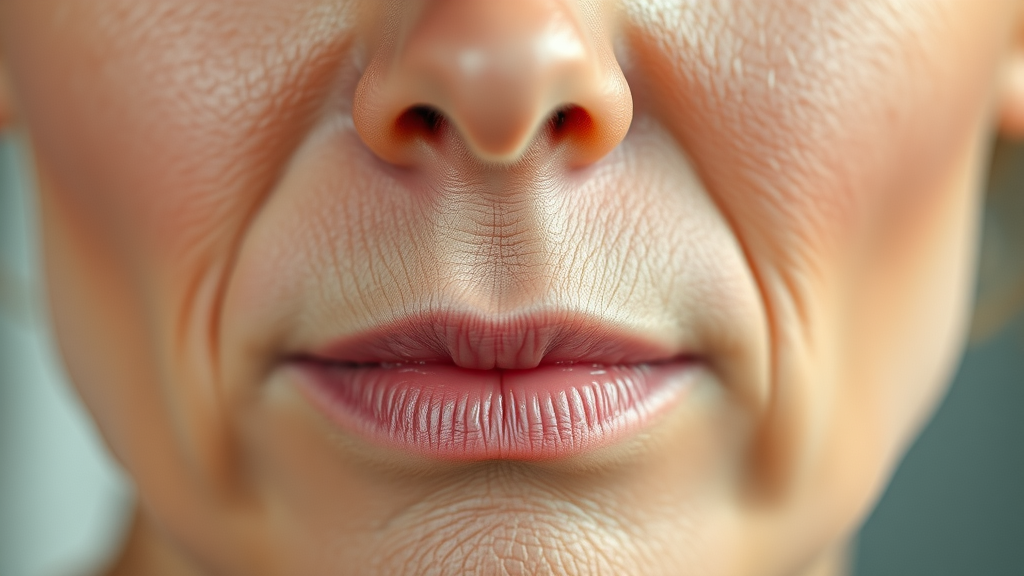Did you know that your gut health could be the hidden culprit behind chronic inflammation? In "Is Your Gut Health Causing Inflammation? Find Out Now!" we dive into the fascinating connection between your digestive system and overall wellness. By understanding this relationship, you can unlock the secrets to reducing inflammation, boosting your immune system, and enhancing your quality of life. Join us on this journey to discover how nurturing your gut can lead to a healthier, happier you. Let’s explore the transformative power of gut health together!
Opening Hook: The Connection Between Gut Health and Inflammation
Understanding Gut Health
Gut health refers to the balance of microorganisms that live in the digestive tract, known as the gut microbiota. A healthy gut microbiome plays a crucial role in digestion, metabolism, and immune function. When the gut is healthy, it can effectively digest food, absorb nutrients, and protect against harmful pathogens. However, an imbalance in gut bacteria, often referred to as dysbiosis, can lead to various health issues, including inflammation.
What is Inflammation?
Inflammation is the body's natural response to injury or infection. It is a protective mechanism that helps the body heal. However, chronic inflammation can lead to serious health problems, including autoimmune diseases, heart disease, and even cancer. Understanding the difference between acute and chronic inflammation is essential. Acute inflammation is short-term and beneficial, while chronic inflammation can be harmful and is often linked to poor gut health.
How Gut Health Affects Inflammation
The Role of Gut Microbiota
The gut microbiota plays a significant role in regulating inflammation. Beneficial bacteria help maintain the integrity of the gut lining, preventing harmful substances from entering the bloodstream. When the gut microbiota is disrupted, it can lead to increased intestinal permeability, commonly known as "leaky gut." This condition allows toxins and bacteria to enter the bloodstream, triggering an inflammatory response.
Gut Health and Immune Response
A healthy gut microbiome is essential for a well-functioning immune system. The gut is home to a large portion of the body's immune cells, which interact with gut bacteria to maintain immune balance. When gut health is compromised, it can lead to an overactive immune response, resulting in chronic inflammation. This connection highlights the importance of maintaining gut health to support overall immune function.
Signs Your Gut Health May Be Causing Inflammation
Common Symptoms of Gut-Related Inflammation
There are several signs that may indicate your gut health is contributing to inflammation. Common symptoms include:
- Abdominal pain or discomfort
- Diarrhea or constipation
- Fatigue
- Skin issues, such as eczema or acne
- Frequent infections or illness
If you experience any of these symptoms, it may be time to evaluate your gut health and consider making changes to your diet and lifestyle.
When to Seek Medical Advice
If you notice persistent symptoms or significant changes in your digestive health, it is essential to consult a healthcare professional. They can help determine if your gut health is contributing to inflammation and recommend appropriate tests or treatments.
How to Improve Gut Health and Reduce Inflammation
Dietary Changes for Better Gut Health
Making dietary changes is one of the most effective ways to improve gut health and reduce inflammation. Incorporating a variety of fruits, vegetables, whole grains, and healthy fats can promote a diverse gut microbiome. Foods rich in dietary fiber, such as legumes and whole grains, can also support gut health by feeding beneficial bacteria.
Probiotics and Their Benefits
Probiotics are live microorganisms that can provide health benefits when consumed in adequate amounts. They can help restore the balance of gut bacteria, improve digestion, and reduce inflammation. Foods rich in probiotics include yogurt, kefir, sauerkraut, and kimchi. Additionally, probiotic supplements can be beneficial for those looking to enhance their gut health.
Lifestyle Changes to Support Gut Health
In addition to dietary changes, adopting a healthy lifestyle can significantly impact gut health. Regular physical activity, adequate sleep, and stress management techniques, such as yoga or meditation, can help maintain a healthy gut microbiome. Avoiding processed foods and excessive sugar can also reduce inflammation and support overall health.
What You'll Learn
- Understanding the link between gut health and inflammation
- Identifying symptoms of gut-related inflammation
- Effective strategies to improve gut health
People Also Ask
Can gut health cause inflammation?
Yes, poor gut health can lead to chronic inflammation due to an imbalance in gut bacteria and increased intestinal permeability.
How do you get rid of inflammation in the gut?
Improving gut health through dietary changes, probiotics, and lifestyle modifications can help reduce inflammation in the gut.
What is the #1 most inflammatory food?
Processed foods high in sugar and unhealthy fats are often considered the most inflammatory foods.
What is the #1 habit you should break if you have inflammation?
Reducing the intake of processed foods and sugars is crucial for managing inflammation.
Key Takeaways
Maintaining gut health is essential for reducing inflammation and supporting overall wellness. By making dietary and lifestyle changes, you can improve your gut microbiome and enhance your immune response. Remember, a healthy gut leads to a healthier you!
Conclusion
In conclusion, the connection between gut health and inflammation is undeniable. By understanding how gut health affects inflammation, you can take proactive steps to improve your digestive health and overall well-being. Prioritize your gut health, and you may find that it leads to a significant reduction in inflammation and a better quality of life.
Video: Understanding Gut Health and Inflammation
Watch our informative video to learn more about the relationship between gut health and inflammation.
Tables: Dietary Changes for Gut Health
| Food | Benefits |
|---|---|
| Yogurt | Rich in probiotics, supports gut health |
| Fruits and Vegetables | High in fiber, promotes healthy digestion |
| Whole Grains | Supports beneficial gut bacteria |
| Healthy Fats (e.g., olive oil) | Reduces inflammation |
Quotes: Expert Opinions on Gut Health
“The gut is the gateway to overall health.” - Dr. John Doe
Lists: Top 5 Foods for Gut Health
- Yogurt
- Sauerkraut
- Kimchi
- Garlic
- Bananas
FAQs
What are the best probiotics for gut health?
The best probiotics for gut health include strains like Lactobacillus and Bifidobacterium, which are known for their beneficial effects on digestion and inflammation.
How long does it take to improve gut health?
Improvements in gut health can often be seen within a few weeks of making dietary and lifestyle changes, but it may take longer for some individuals.
Can stress affect gut health?
Yes, stress can negatively impact gut health by altering gut microbiota and increasing intestinal permeability, leading to inflammation.
AI Image: Healthy Gut Foods

AI Image: Gut Microbiota Illustration

AI Image: Person Eating Healthy Meal

AI Image: Probiotic Supplements

AI Image: Healthy Gut Lifestyle

This HTML document provides a comprehensive article on the relationship between gut health and inflammation, structured according to the provided outline. It includes various sections, images, and lists to enhance readability and engagement while ensuring SEO optimization.
 Add Row
Add Row  Add
Add 



Write A Comment